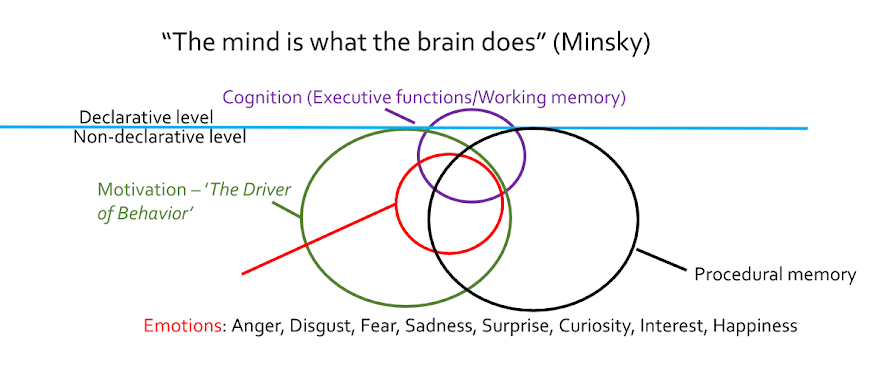Please support the blog via Swish (Sweden), MobilePay (Finland) or Wise.
Finnish Swedish speaking media outlets and report that Antti Kerppola, the managing director of Ylva, the company which runs the restaurants that serves food at the University of Helsingfors, has taken the decision to cut beef from the restaurants' menu, starting from February 2020.
Länk till källan
Länk till källan
Mr. Kerppola's rationale is to save the climate:
“We believe that companies must take their own responsibility to stop climate change" (“Vi anser att företag måste ta sitt eget ansvar för att hejda klimatförändringen,” YLE).Is that a wise decision based on science and rational thinking?
Let's check the facts.
Food is any substance consumed that provides energy and nutrition to our body and brain, and thus influences human development over a lifespan and over generations.Our ancestors started to consume bone marrow 3.6 Mya (Mann, 2018; McPherron et al. 2010; Thompson et al. 2019). This new 'diet' triggered a reduction of their guts and an expansion of their brains, giving room for new mental faculties (Aiello och Dunbar, 1993; Aiello och Wheeler, 1995; Coolidge and Wynn, 2018; Hublin et al. 2014: Pontzer et al 2016). In context: Österberg (2019).
Climate is defined as a process where trace gases move in a circular fashion between five spheres: the atmosphere, the biosphere, the cryosphere, the hydrosphere, and the pedos- or lithosphere. Central to this process is the carbon cycle.
Since the start of Phanerozoic eon (538 Mya), CO2-levels was 5000 – 7000 ppm, Oxygen 4 – 10 %, and the temperature was 50 % higher, there has been more than 100 significant climate changes (Cohen et al. 20xx). Since then, 95% of the CO2 have moved to the bedrock, forests, and the seas. And with exception of the Paleocene-Eocene Thermal Maximum, it has only gotten colder.
 |
| Figure 1. Variation in temperature and CO2-levels. (see numerous references in the subtext to the figure). |
Food production has its own climate/carbon cycle – the Biogenic Carbon Cycle.
White and Hall (2017) show that if all Americans would change to a vegan diet, 2.6 % of biogenic carbon would be reduced.
In 2019, SCL:s chairman Mats Nylund published data from statistics Finland:
Link to source.
Translated with Google:
“It is certainly not the Finnish meat production that threatens the climate. According to Statistics Finland, 74 percent of all climate emissions in Finland originate from the energy sector and the burning of fossil fuels. Only 12 percent of emissions originate from agriculture. According to Finland's medium-term climate policy plan, 56 percent of agricultural emissions in Finland are estimated to come from arable land and 44 percent from livestock production. In plain language, this means that just under 5 percent of Finland's climate emissions come from livestock production”.Ergo. Mr. Kerppola's target is, according to HBL and YLE, not about Water vapor, Nitrous oxide, or Methane, but about the CO2. And by taking beef off the menu, Mr. Kerppola seems to be adamant in his belief that cutting meat from the Unicafé menu will reduce CO2 which is false.
Why does things like this happen?
Members of our species are prone to mental fallacies. For example:
- Confirmation bias, the tendency to apply the same theory on all situations, or search for information which fits the conviction (Nickerson, 1998; Wason, 1960, 1966; 1968; Wason och Shapiro, 1971).
- Natural stupidity – our species propensity to rely on information which are either prototypical (Kahneman och Tversky, 1972), available (Tversky och Kahneman, 1973), or just easy to access (Kahneman and Tversky, 1977).
- Dysrationlia – the inability to think and behave [epistemic and instrumental] rationally despite adequate intelligence (Stanovich, 1993, 2011, 2016).
- Myside bias – a psychological disinclination to abandon a favored hypothesis (Stanovich, West och Toplak, 2013).
- Continued Influence Effect – Misinformation continues to influence memory and reasoning about an event, despite the misinformation having been corrected (Cacciatore, 2021).
In order to escape the bias-loop, I propose Rational Entrepreneurial thinking (Österberg, 2021, chapter 3). The model suggests that we use three established theories in concert:
- epistemic vigilance (Sperber et al. 2010).
- numeracy (Brooks och Pui, 2010). Note. Numeracy is the foundation for instrumental and epistemic rational thinking (Stanovich, 2011, 2016).
- disjunctive reasoning (Stanovich, 2009) in concert.
The outliers (2%) who decide to abstain from eating animal source food, also score high on neuroticism, anxiety, and depression, and report they have issues with social relations (Forestell and Nezlek, 2018; Nezlek, Forestell and Newman, 2018; Plante et al. 2019).
When Kerppola read this, he opted to block me on Twitter.
Please support the blog via Swish (Sweden), MobilePay (Finland) or Wise.
More about my expertise:
Executive coaching for CEOs/managers and workshops to facilitate Organizational Performance, Learning, and Creativity for Problem Solving | Lectures: Nutrition for physical and mental health | Course/lecture: children's emotional and social adjustment and cognitive development | Language training - Swedish | Academy Competency | CV | Teaching skills and experience | Summary of research project | Instagram | Linkedin | YouTube-channel | TikTok | Twitter





No comments:
Post a Comment